#jacques frantz
Explore tagged Tumblr posts
Text
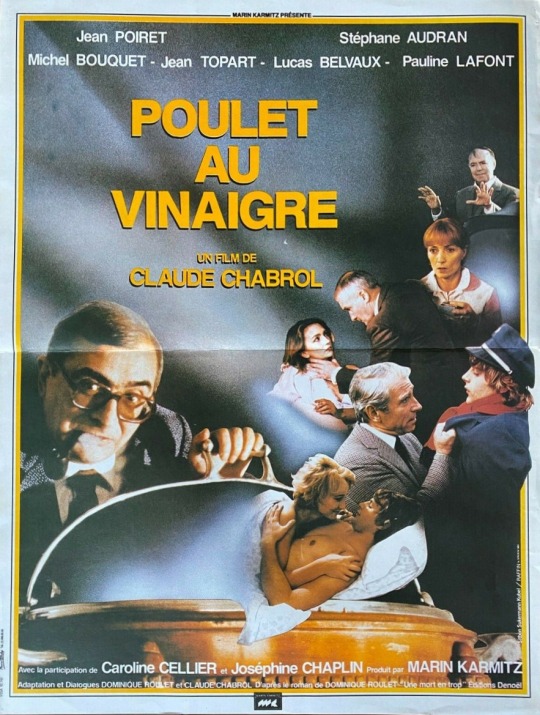
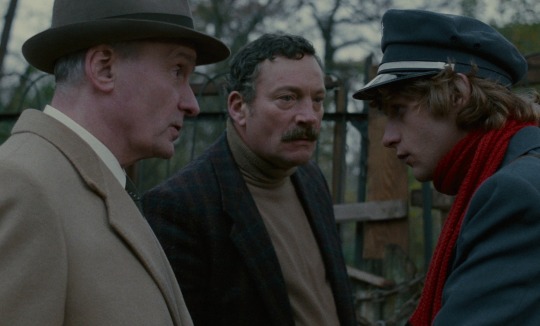
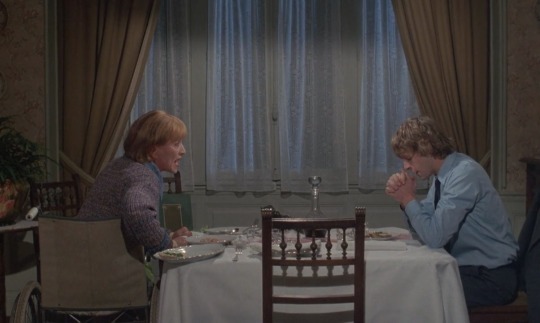
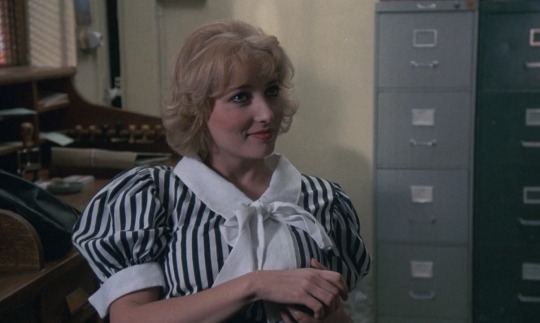



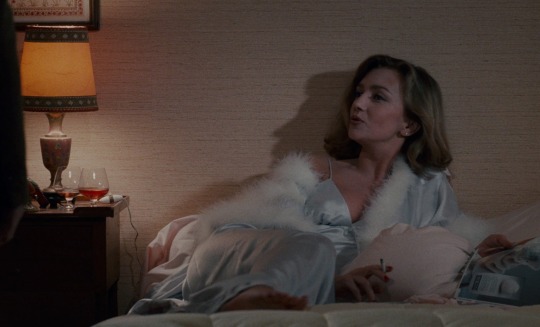


Poulet au vinaigre (Cop Au Vin, 1985)
"I'm paid a modest sum to nose around, spy and pester people. And to find the truth."
#poulet au vinaigre#cop au vin#french cinema#claude chabrol#dominique roulet#1985#jean poiret#stéphane audran#michel bouquet#jean topart#lucas belvaux#pauline lafont#andrée tainsy#jean claude bouillaud#jacques frantz#albert dray#henri attal#dominique zardi#caroline cellier#josephine chaplin#beautifully shot mystery thriller with an eye toward social satire; the influence of Simenon hangs heavy‚ altho Poiret's Insp. Lavardin is#nothing like the steadfast Maigret. quite a bold move‚ to make your detective quite so objectionable: Lavardin isn't particularly likeable#from his introduction (more than 40 minutes into the film) but once he starts beating his suspects and waterboarding others as an#interrogation technique‚ he becomes downright detestable. the actual mystery plot is relatively slight‚ and the various twists won't#surprise anyone half way familiar with the genre‚ but this is more about the creation of a beautifully rendered portrait of small town#intrigues and the diseased spread of secrets than it is a conventional genre picture. the cast are uniformly excellent‚ and as much as i#disliked the character i have to say Poiret in particular is never less than mesmerising; every carefully chosen movement and expression‚#each discomforting smile as he bends the law until it breaks‚ in the name of pursuing 'justice'. my first Chabrol but certainly not my last
4 notes
·
View notes
Text
“Now, Marriott begins the book with this question: ‘To whom does Lacan speak?’ (p. 1). Lacan had a pretty consistent answer, and it is well known: he addressed ‘supposed’ analysts, and those who could hear him, who desired to listen (Lacan, 1990, p. 6). Marriott continues: ‘Nowhere does Lacan indicate that he is speaking to black people’ (p. 1). This should give us pause. For some reason, Lacan Noir’s overture consists of positing ‘psychoanalysts’ and ‘black people’ as non-intersecting categories. Note that this is an empirically refutable fact – and even if there were never a single black attendee of the seminars he conducted for thirty years, even if there were zero black Lacanian analysts in the entire world, this would not amount to proof that Lacan was not addressing black people. And if Lacan ‘indicated’ that he was speaking to black people (what would that sound like? how would we recognize that?), this would also not be proof of the existence of a structure of address. So why does Lacan Noir, which bills itself as a ‘“black” reading of Lacan’ ( p. 38), begin this way? Or maybe the better question is this one: in addition to a black reading of Lacan, can there also be a black practice of Lacan, which Fanon arguably sought by institutionalizing social therapy in Algeria and Tunisia, and that he undoubtedly aimed to extend when he declared his desire to undergo a personal analysis?”
Christopher Chamberlin - David S. Marriott, Lacan Noir: Lacan and Afro-pessimism (Basingstoke: Palgrave Macmillan, 2021; 197 pp); reviewed by Christopher Chamberlin [PSYCHOANALYSIS AND HISTORY (2024) 26(1)]
3 notes
·
View notes
Text
Tuğçe Kelleci – (Post)kolonyalizm (2023)
Postkolonyalizm, Türkiye’de akademik, entelektüel ve politik çevrelerde gecikerek de olsa etkili bir düşünce akımı oldu. Ancak içerdiği eleştirelliğe rağmen o da araçsal aklın hizmetine girmekten kurtulamadı. Bu çalışma çok önemli bir istisna oluşturuyor: Eleştirel düşünceyi postkolonyalizmin kendisine yönelterek sorgulanmadan alınıp tekrar edilen veya uyarlanan önkabulleri titiz bir teorik…
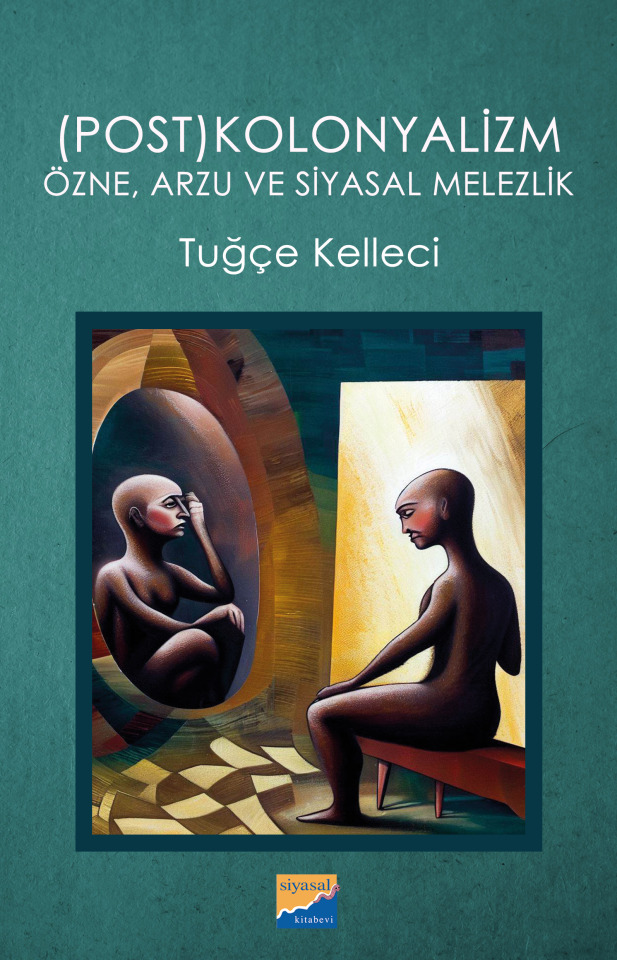
View On WordPress
#2023#Özne Arzu ve Siyasal Melezlik#Frantz Fanon#Homi Bhabha#Jacques Lacan#Michel Foucault#Postkolonyalizm#Siyasal Kitabevi#Tuğçe Kelleci
0 notes
Text
oggi, 1 aprile, roma: "corpo ricorda", l'art brut nella collezione giacosa-ferraiuolo
OGGI 1 aprile 2023, dalle ore 17 alle 22 via Francesco Negri 65 – Roma SIC 12 artstudio presenta CORPO RICORDA L’Art Brut nella collezione Giacosa-Ferraiuolo a cura di Gustavo Giacosa 02.04.23 > 03.12.23 Sarah Albert Noviadi Angksapura Guido Boni Frédéric Bruly-Bouabré Francesco Borrello Nicole Claude Michel Dave Gabriel Evrard Giampaolo Coresi Saverio Fontana Maurizio Fontanelli Davood…

View On WordPress
#Alessandra Michelangelo#art#art brut#arte#arte irregolare#Benoït Monjoie#Collezione Giacosa-Ferraiuolo#Davood Koochaki#Francesco Borrello#Frantz Jacques Guyodo#Frédéric Bruly-Bouabré#Gabriel Evrard#Giampaolo Coresi#Giovanni Galli#Guido Boni#Gustavo Giacosa#Manuela Sagona#Marilena Pelosi#Maurizio Fontanelli#Michel Dave#Michel Nedjar#Miguel Angel Suesta#Nicole Claude#Noviadi Angksapura#Oswald Tschirtner#Philippe Marien#Pietro Ghizzardi#Sarah Albert#Saverio Fontana
1 note
·
View note
Note
niceys positive anon!! i don't agree with you on everything but you are so clearly like well read and well rounded that you've helped me think through a lot of my own inconsistencies and hypocrises in my own political and social thought, even if i do have slightly different conclusions at times then u (mainly because i believe there's more of a place for idealism and 'mind politics' than u do). anyway this is a preamble to ask if you have recommended reading in the past and if not if you had any recommended reading? there's some obvious like Read Marx but beyond that im always a little lost wading through theory and given you seem well read and i always admire your takes, i wondered about your recs
it's been a while since i've done a big reading list post so--bearing in mind that my specific areas of 'expertise' (i say that in huge quotation marks obvsies i'm just a girlblogger) are imperialism and media studies, here are some books and essays/pamphlets i recommend. the bolded ones are ones that i consider foundational to my politics
BASICS OF MARXISM
friedrich engels, principles of commmunism
friedrich engels, socialism: utopian & scientific
karl marx, the german ideology
karl marx, wage labour & capital
mao zedong, on contradiction
nikolai bukharin, anarchy and scientific communism
rosa luxemburg, reform or revolution?
v.i lenin, left-wing communism: an infantile disorder
v.i. lenin, the state & revolution
v.i. lenin, what is to be done?
IMPERIALISM
aijaz ahmed, iraq, afghanistan, and the imperialism of our time
albert memmi, the colonizer and the colonized
che guevara, on socialism and internationalism (ed. aijaz ahmad)
eduardo galeano, the open veins of latin america
edward said, orientalism
fernando cardoso, dependency and development in latin america
frantz fanon, black skin, white masks
frantz fanon, the wretched of the earth
greg grandin, empire's workshop
kwame nkrumah, neocolonialism, the last stage of imperialism
michael parenti, against empire
naomi klein, the shock doctrine
ruy mauro marini, the dialectics of dependency
v.i. lenin, imperialism: the highest stage of capitalism
vijay prashad, red star over the third world
vincent bevins, the jakarta method
walter rodney, how europe underdeveloped africa
william blum, killing hope
zak cope, divided world divided class
zak cope, the wealth of (some) nations
MEDIA & CULTURAL STUDIES
antonio gramsci, the prison notebooks
ed. mick gidley, representing others: white views of indigenous peoples
ed. stuart hall, representation: cultural representations and signifying pratices
gilles deleuze & felix guattari, capitalism & schizophrenia
jacques derrida, margins of philosophy
jacques derrida, speech and phenomena
michael parenti, inventing reality
michel foucault, disicipline and punish
michel foucault, the archeology of knowledge
natasha schull, addiction by design
nick snricek, platform capitalism
noam chomsky and edward herman, manufacturing consent
regis tove stella, imagining the other
richard sennett and jonathan cobb, the hidden injuries of class
safiya umoja noble, algoriths of oppression
stuart hall, cultural studies 1983: a theoretical history
theodor adorno and max horkheimer, the culture industry
walter benjamin, the work of art in the age of mechanical reproduction
OTHER
angela davis, women, race, and class
anna louise strong, cash and violence in laos and vietnam
anna louise strong, the soviets expected it
anna louise strong, when serfs stood up in tibet
carrie hamilton, sexual revolutions in cuba
chris chitty, sexual hegemony
christian fuchs, theorizing and analysing digital labor
eds. jules joanne gleeson and elle o'rourke, transgender marxism
elaine scarry, the body in pain
jules joanne gleeson, this infamous proposal
michael parenti, blackshirts & reds
paulo freire, pedagogy of the oppressed
peter drucker, warped: gay normality and queer anticapitalism
rosemary hennessy, profit and pleasure
sophie lewis, abolish the family
suzy kim, everyday life in the north korean revolution
walter rodney, the russian revolution: a view from the third world
#ask#avowed inframaterialist reading group#i obviously do not 100% agree with all the points made by and conclusions reached by these works#but i think they are valuable and useful to read
1K notes
·
View notes
Note
im hoping to become a full time, full fledged toxic cinephile filmbro with an air of superiority and condescension. do you have a list of movies i should watch to start my journey?
ah! wrong door for toxic cinephile initiation — this is the department of the humble admirers of cinema. however, I’d be delighted to share some personal favorites if you’d like. the list may expand over time because.. well... cinema is a gift that keeps on giving (and my memory is a treacherous friend)
The Umbrellas of Cherbourg (1964, Directed by Jacques Demy), Ararat (2002, Directed by Atom Egoyan), In the Mood for Love (2000, Directed by Wong Kar-wai), Fallen Angels (1995, Directed by Wong Kar-wai), Chungking Express (1994, Directed by Wong Kar-wai), The Godfather Trilogy (1972, 1974, 1990 Directed by Francis Ford Coppola), Le Bonheur (1965, Directed by Agnès Varda), 2001: A Space Odyssey (1968, Directed by Stanley Kubrick), The Color of Pomegranates (1969, Directed by Sergei Parajanov), Mirror (1975, Directed by Andrei Tarkovsky), Indian Summer (1972, Directed by Valerio Zurlini), The Men (1972, Տղամարդիկ, Directed by Edmond Keosayan), A Piece of Sky (1980, Կտոր մը երկինք, Directed by Henrik Malyan), Mother (1991, Mayrig, Directed by Henri Verneuil), A Special Day (1977, Una giornata particolare, Directed by Ettore Scola), Grave of the Fireflies (1988, Directed by Isao Takahata), A Short Film About Love (1988, Directed by Krzysztof Kieślowski), The Double Life of Véronique (1991, La Double Vie de Véronique, Directed by Krzysztof Kieślowski), Three Colours Trilogy (1993, 1994, Directed by Krzysztof Kieślowski), Damage (1992, Directed by Louis Malle), Phantom Thread (2017, Directed by Paul Thomas Anderson), Léon: The Professional (1994, Directed by Luc Besson), Before Sunrise (1995, Directed by Richard Linklater), Perfect Blue (1997, Directed by Satoshi Kon), Notting Hill (1999, Directed by Roger Michell), Mr. Nobody (2009, Directed by Jaco Van Dormael), Spirited Away (2001, Directed by Hayao Miyazaki), Howl’s Moving Castle (2004, Directed by Hayao Miyazaki), The Lord of the Rings Trilogy (2001-2003, Directed by Peter Jackson), Pride & Prejudice (2005, Directed by Joe Wright), The Phantom of the Opera (2004, Directed by Joel Schumacher), Alexander (2004, Directed by Oliver Stone), A Ghost Story (2017, Directed by David Lowery), Lust, Caution (2007, Directed by Ang Lee), Submarine (2010, Directed by Richard Ayoade), Inception (2010, Directed by Christopher Nolan), Jane Eyre (2011, Directed by Cary Joji Fukunaga), Her (2013, Directed by Spike Jonze), Carol (2015, Directed by Todd Haynes), From the Land of the Moon (2016, Directed by Nicole Garcia), Frantz (2016, Directed by François Ozon)
287 notes
·
View notes
Text
Reading Notes 6: Freud to Lacan to Fanon
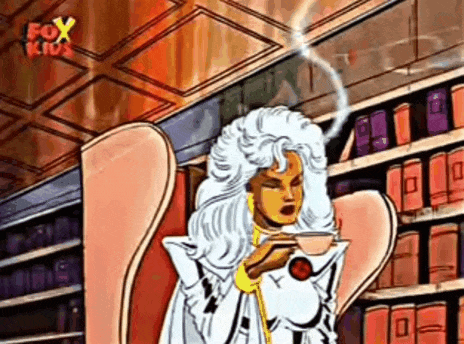
We look to Sigmund Freud’s “The Uncanny,” Jacques Lacan’s “The Mirror Stage as Formative of the Function of the I,” and Frantz Fanon’s “The Negro and Psychopathology” for our inquiry into the functions of psychoanalysis and subjectivity when examining visual texts.
Why do people call an experience or event uncanny, and what makes an occurrence that appears to be uncanny but is not uncanny?
What is the relation of personal neurosis to social passions?
In what ways are oppressed and marginalized viewers alienated when they are not or rarely represented?
@theuncannyprofessoro
18 notes
·
View notes
Text
@quarkfcker asked me to compile a list of my favorite works of critical theory - here you go! if anyone is interested in the titles i’ll try to find links later (i’m currently stuck in bed with an endometriosis flare up and posting this from my phone lol)
Susan Sontag - Illness as Metaphor (deals critically with attaching morality to health; in one of my favorite sections Sontag discusses the vocabulary around getting better - “fighting” cancer, “beating” a disease, etc)
Cassie Pedersen - “Encountering Trauma ‘Too Soon’ and ‘Too Late’: Caruth, Laplanche, and the Freudian Nachträglichkeit” in Topography of Trauma: Fissures, Disruptions, and Transfigurations (Deconstruction of Freud’s notion that trauma is time-based and only recurrent after the action)
Judith Butler - Gender Trouble (one of my favs forever)
Eve Sedgewick - “Epistemology of the Closet” and “Between Men” (Between Men especially)
I would try very hard to muscle through a little bit of Jacques Lacan just to understand the concept of the Other. It’s not gonna be easy or fun though.
Sigmund Freud - “Three Essays on the Theory of Sexuality” (I know I know boo we hate your pussy Sigmund but I think it’s important to read Freud so you can have a leg to stand on when you’re arguing against him. He also wasn’t wrong all the time, and a lot of his theory gets picked up by feminist scholars, especially these essays. I think often it’s a matter of needing someone who wasn’t a misogynist to contextualize his work.)
Edward Saïd - Orientalism
Frantz Fanon - Black Skin, White Masks and The Wretched of the Earth (both are postcolonialist theory. Fanon is a huge name in poco that you should know.)
Louis Althusser - “Ideology and Ideological State Apparatuses” (don’t fuck with the working class etc. This one gives you cool and smart-sounding words like The Superstructure.)
Rosi Braidotti - The Posthuman (Good way to dip your toes into the never ending pool of posthumanism.)
Deleuze and Guattari are interesting but I would watch some Youtube videos explaining their work rather than just reading them because it is not brain friendly to me. Check out “The Body without Organs” and “Rhizomes” specifically. However be mindful that reading firsthand is always a good start to understanding, and videos should be supplemental.
Walter Pater and Matthew Arnold are dear to me because I’m a Romantic/Victorian scholar but if you’re not then you probably won’t get as much out of them. I still think Arnold’s Stones of Venice and Pater’s Studies in the History of the Renaissance are good foundational reads to understand a lot of the basis of art and criticism today.
Sigmund Freud (again) - “The Uncanny”
Zora Neale Hurston is incredible and a good name to keep in your pocket. She was a Black anthropologist and a lot of her work is deeply astoundingly moving.
FUCK SIMONE DE BEAUVOIR
Roland Barthes - “Death of the Author” (this is required reading for everyone.)
Peruse a good bit of Foucault.
Jacques Derrida - “Spectres of Marx,” “Hauntology,” etc. (I LOVE DERRIDA!!!! I’d definitely read an introduction to deconstruction first.)
Toni Morrison - “Unspeakable Things Unspoken: The Afro-American Presence in American Literature” (you should already be reading Toni Morrison.)
Sandra M. Gilbert and Susan Gubar - The Madwoman in the Attic (Loove this one. Feminist reading of Victorian literature.)
Hélène Cixous is a good name to know and have in your filing cabinet, as is Julia Kristeva.
Any and all bell hooks you can find, especially “Postmodern Blackness” and Feminism is for Everyone. If you’re planning on being anywhere near the sphere of education, check out Teaching to Transgress.
Jack Halberstam - “Female Masculinity” (Butchness and how it differs from male masculinity)
Rob Nixon - “Slow Violence and the Environmentalism of the Poor”
E. Ann Kaplan - Trauma Culture: The Politics of Terror and Loss in Media and Literature (connection between the individual and cultural trauma)
21 notes
·
View notes
Text
“But intellectual life is flourishing in the cafés, institutes and academies, as refugees forge community in exile. And at the École Pratique des Hautes Études, one of France’s most prestigious research universities, Alexandre Kojève has taken over Alexandre Koyré’s seminar on The Phenomenology of Spirit (1807) by G W F Hegel. Between 1933 and 1939, Raymond Aron, Georges Bataille, André Breton, Gaston Fessard, Jacques Lacan, Maurice Merleau-Ponty, Éric Weil, Hannah Arendt, Jean-Paul Sartre, Simone de Beauvoir, Frantz Fanon, Raymond Queneau, Emmanuel Levinas all come to hear his lectures. A collection of the most renowned thinkers of the day, who would come to lay the intellectual foundations for 20th-century philosophy, political thought, literature, criticism, psychology and history. It is said that Kojève’s lectures were so intricate, so deft, that Arendt accused him of plagiarising. Bataille fell asleep. Sartre couldn’t even remember being there.
(…)
The short answer is that Kojève made Hegel accessible by bringing to the surface one of the essential elements of his work: desire. Kojève did not deny he was providing a reading of Hegel that transformed the text. His interpretation has been described as ‘creative’, ‘outrageous’ and ‘violent’. The question Kojève placed at the centre of his lectures was: ‘What is the Hegelian person?’ And he answered this question through a discussion of human desire by centring a brief section in the Phenomenology titled ‘Independence and Dependence of Self-consciousness: Lordship and Bondage’, which is popularly rendered as ‘the master/slave dialectic’. And by centring this nine-page section of a 640-page work, Kojève offered readers a way to grasp an otherwise elusive text.
Poetic in its opacity, perplexing in its terminology, Hegel’s work offers an understanding of the evolution of human consciousness where the finite mind can become a vehicle for the Absolute. But what does that mean? Kojève took the lofty prose of Hegel down from the heavens and placed it in human hands, offering a translation: this is a book about human desire and self-consciousness. Or, as the philosopher Robert Pippin writes:
Kojève, who basically inflates this chapter to a free-standing, full-blown philosophical anthropology, made this point by claiming that for Hegel the distinctness of human desire is that it can take as its object something no other animal desire does: another’s desire.
What was Kojève’s reading of the master/slave dialectic?
In Kojève’s reading, human beings are defined by their desire for recognition, and it is a desire that can be satisfied only by another person who is one’s equal. On this reading, Kojève unfolds a multi-step process: two people meet, there is a death-match, a contest of the wills between them, and whoever is willing to risk their life triumphs over the other, they become the master, the other becomes a slave, but the master is unable to satisfy his desire, because they’re recognised only by a slave, someone who is not their equal. And through the slave’s work to satisfy the master’s needs, coupled with the recognition of the master, ultimately the slave gains power.
What is essential for Kojève is that one risk their life for something that is not essential. The one who shrinks before the other in fear of death becomes the slave. The one willing to die – to face the inevitability of their own non-existence – becomes the master. In other words, desire is an exertion of the will over an other’s desire. Or, as the French psychoanalyst Jacques Lacan would come to say: ‘Desire is the desire of the Other’s desire.’ It is not an attempt to possess the other person physically, but to force the other person in that moment of contest to make the other give, to bend their will, in order to achieve superiority. And in this moment, Kojève writes: ‘Man will risk his biological life to satisfy his nonbiological Desire.’ In order to gain recognition in this sense, one must be willing to risk everything – including their life. It is a struggle for mastery of the self.
Instead of Hegel’s roundabout of self-consciousness that exists in itself and for itself but always and only in relation to another, Kojève gives us: self-consciousness is the I that desires, and desire implies and presupposes a self-consciousness. Thinking about the relation between the finite mind and Absolute knowledge is opaque, but desire is human. People know what it feels like to desire, to want, to crave to be seen, to feel understood. Desire is the hunger one feels to fill the absence inside themselves. Or, as Kojève put it: ‘Desire is the presence of absence.’
(…)
Perhaps most importantly, what Kojève understood was the extent to which we humans desire to exercise some control over how other people see us differently from the ways in which we see ourselves. However tenuous or certain our sense of self-identity may seem, it is our very sense of self that we must risk when we appear in the world before others – our identity, desire, fear and shame. There is no guarantee that we will be seen in the way we want to be seen, and feeling misrecognised hurts when it happens, because it wounds our sense of self. But this risk is vital – it is part of what makes us human, it is part of our humanity. And whereas Kojève’s reading drives toward an ideal of social equality that affirms one’s preexisting sense of self when confronted by an other, for Hegel, one must take the other’s perception of the self – whatever it may be – back into their own self-consciousness. In other words, whereas for Hegel freedom rested upon the ability to preserve difference, for Kojève it rested upon the ability to preserve one’s own identity at the expense of difference.
In bringing the lofty language of Hegel down from the heavens, Kojève offered readers a secular understanding of human action, which requires each and every individual to reckon with the inevitability of their own death, their own undoing. And in doing so he shifted the focus toward the individual as the locus of social change, where history unfolds toward an aristocratic society of equals, where all difference is destroyed. Influenced by Karl Marx’s account of class struggle as the engine of history, and Martin Heidegger’s understanding of being-toward-death, Kojève’s reading of the master/slave dialectic presents another form of contest between oppressor and oppressed, where mastery over another in order to master oneself becomes the means to equality, and ultimately justice within society. Kojève adopted the master/slave dialectic in order to develop what Michael Roth called ‘a schema for organising change over time’, to think about the movement of history. And the master/slave dialectic unfolds at the level of the individual and the level of society, where the self gains recognition as a desiring subject through the endless battle for recognition that is appearing in the world with others, and the level of society where all past historical movements will be judged within a framework of right, which is the end of history.
This has been in part the legacy of Kojève. Influenced by Kojève’s reading of the master/slave dialectic, Sartre argued in Being and Nothingness (1943) that man’s freedom is found in negation. In The Second Sex (1949), Beauvoir turned to Kojève to think about women’s oppression in relation to man and the need for intersubjective recognition. Lacan’s ‘mirror-stage’ follows Kojève’s reading of Hegel to understand the role of desire as a lack in the formation of human subjectivity. Bataille turned to Kojève to argue that one could experience full self-sovereignty only in a moment of pure negation. For Foucault, it led to the belief that there is no desire free from power-relations – his central theme. And for Fukuyama, this historical contest of wills evolving along a linear temporal plane toward an equal and just society has become the much-mocked ‘end of history’ thesis – the idea that Western liberal democracy has evolved as the final form of human government in the postwar world. The postwar world Kojève himself helped to shape, before his untimely death in 1968. Ultimately, Fukuyama’s thesis captures the difference between Hegel and Kojève’s Hegel: for Kojève, the ideal of universal equality won through an endless battle for recognition was always an individualist notion that required domination when confronted by otherness. But for Hegel, human freedom could be won only through collectivity by embracing the opacity of otherness that we are constantly confronted with in ourselves, and in the world with others. It is an acceptance of that fact that self-mastery will always remain an illusion.”
#kojeve#kojève#alexandre kojève#philosophy#leo strauss#francis fukuyama#stalin#hegel#hegelian#sartre#bataille
8 notes
·
View notes
Text
Dominique Fils-Aimé - Our Roots Run Deep - conincidental (?) stylistic resonances with Moondog, who is the subject of a new tribute album
There is a cinematic quality to “Our Roots Run Deep”. Dominique Fils-Aimé frames her latest album with a loose, dreamlike narrative structure that tells a story of growth. The first track sets the stage with the phrase: “our roots run deep underground”. Along the way, there are a myriad of human challenges and forms of interference. An underlying life force presses on. The final track closes with the lyric: “let me climb all the way to the sun”. Dominique provides a spaciousness in her work by creating her own musical language. She layers a variety of catchy, wordless vocal licks that feel like mantras or prayers—repeating, soothing the nervous system, and distinguishing her sound. These patterns don’t have any literary definitions attached to them so they escape the clutches of our interpreting minds. The result is a sonic space where the listener can feel and dream alongside innovative melodic structures. All songs written by Dominique Fils-Aimé Vocals: Dominique Fils-Aimé Bass: Jacques Roy Drums: Frantz-Lee Leonard Keys: David Osei Afrifa Percussion: Elli Miller Maboungou Trumpet: Hichem Khalfa Guitar: Etienne Miousse Didgeridoo: Kevin Annocque Photography: Jetro Emilcar Artwork: Siou-Min Julien Ensoul Records, 2023.
4 notes
·
View notes
Text

🎥 Immerse yourself in the captivating performance of "SOUFLE VAN," a traditional Haitian folk song arranged by Johnbern Thomas and performed by an exceptional group of musicians. .
youtube
#Haitilegends
_________
May 18, 2023
(HAITIAN FLAG DAY)
Johnbern Thomas - Drums & Arranger
Pauline Jean - Vocals
Marcus Lolo Keys & BGVS
Marc Harold Pierre - BGVS, Congas, Percussions
Aaron Goldberg - Piano
Billy Buss - Trumpet
Jacques Schwarz-Bart - Saxophone
David Casseus - Electric Bass
Cisco Percussionniste - Congas
Imeran Norman - Cowbell, Guiro
Jose Figueroa - Electric Bass
Aris Stanley Shegger - BGVS
Clyde Duverne - BGVS
This production was made possible by Johnbern Thomas Music Production LLC, working in collaboration with Pauline Jean and Marcus Lolo.
Recorded at : Institut Francais D'Haiti by Pierre Elove Filmed by Jean Sénatus & Etienne Shneider (LGM Studios)
Sear Sound NY by Jeremy Lucas Filmed by Patrick Ulysse (Unimix Films) & Steve Azor
Starke Lake Studio by Harrison Bormann Filmed by Benjamin Altidor.
Earecordingstudio by Ezechiel Augustin
Filmed by Erode Lapointe.
Mixed By Alex Venguer Mastered by Ken Rich at Grand Street Recording.
Project Narrative and Communication: Rosny Ladouceur.
Video Editor: Prime Concept Graphic Design & Project Manager : Ralph Stephane Momperousse.
This project is supported by: Aaron Goldberg, Pauline Jean Music, Marcus Lolo, Frantz Kenol, Yvon Andre (Kapi), Patrice Piersaint Music, Jean Huberman Mercure and the Haitian American Art Network, Inc.
Thank you our musician, friends and supporters for participating in such a noble project. Thank you for gifting this project to our DEAR HAITI May 18, 2023.
_________
Tap/Click #👈🏽
#JohnbernThomasMusic
#JohnbernThomas
#Jazz
#JazzMusic
#Haitianmusic
#HaitianJazz
#KreolJazz
#NewMusicFriday
#OutNow
#Haïti #Ayiti #haitianflagday
#covertunes
#PaulineJean
#MarcusLolo
#ayiticherie
#MarcHaroldPierre
#AaronGoldberg
#BillyBuss
#JacquesSchwarzBart
#DavidCasseus
#CiscoPercussionniste
#ImeranNorman
#JoseFigueroa
#ArisStanleyShegger
#ClydeDuverne
#HaitilegendsJazz
#Haitilegends
#GabrisanMusiclounge
5 notes
·
View notes
Photo

Rentrée d’une journée surveillance de bac et se rappeler qu’il y a la saison 2 Notre planète sur Netflix qui vient de sortir ! (oui j’adore les docus dans ce genre!)
Mais se rappeler soudainement que le narrateur VF ne sera pas Jacques Frantz cette fois...
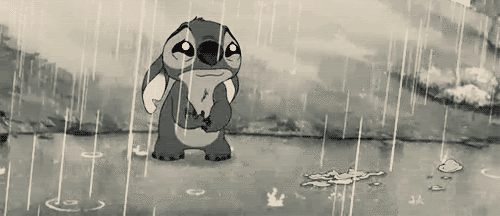
Sa voix si reconnaissable me manque tellement...
4 notes
·
View notes
Text
Janvier MMXXV
Films
747 en péril (Airport 1975) (1974) de Jack Smight avec Charlton Heston, Karen Black, George Kennedy, Efrem Zimbalist Jr., Susan Clark, Roy Thinnes, Sid Caesar, Helen Reddy, Linda Blair, Dana Andrews et Gloria Swanson
Les Trois Mousquetaires (The Three Musketeers) (1948) de George Sidney avec Gene Kelly, Lana Turner, June Allyson, Vincent Price, Van Heflin, Keenan Wynn, John Sutton, Gig Young, Robert Coote, Angela Lansbury et Frank Morgan
Le Dernier Empereur (L'ultimo imperatore, The Last Emperor) (1987) de Bernardo Bertolucci avec John Lone, Richard Vuu, Tijger Tsou, Wu Tao, Joan Chen, Peter O'Toole, Ruocheng Ying, Henry O, Wu Jun Mei, Victor Wong et Ric Young
Zorro (1975) de Duccio Tessari avec Alain Delon, Stanley Baker, Ottavia Piccolo, Moustache, Enzo Cerusico, Giacomo Rossi Stuart, Giampiero Albertini et Adriana Asti
Jules et Jim (1962) de François Truffaut avec Jeanne Moreau, Oskar Werner, Henri Serre, Marie Dubois, Cyrus Bassiak, Sabine Haudepin, Annie Nelsen, Vanna Urbino et Bernard Largemains
Le Bal des cinglés (Operation Mad Ball) (1957) de Richard Quine avec Jack Lemmon, Kathryn Grant, Ernie Kovacs, Dick York, Arthur O'Connell, Mickey Rooney et Jeanne Manet
Witness (1985) de Peter Weir avec Harrison Ford, Kelly McGillis, Josef Sommer, Lukas Haas, Jan Rubes, Alexander Godunov, Danny Glover, Brent Jennings, Patti LuPone et Viggo Mortensen
Mes chers amis (Amici miei) (1975) de Mario Monicelli avec Philippe Noiret, Ugo Tognazzi, Gastone Moschin, Duilio Del Prete, Adolfo Celi, Bernard Blier, Olga Karlatos, Franca Tamantini et Milena Vukotic
La Diablesse en collant rose (Heller in Pink Tights) (1960) de George Cukor avec Sophia Loren, Anthony Quinn, Steve Forrest, Margaret O'Brien, Eileen Heckart, Ramon Novarro, Edmund Lowe et George Mathews
Faster, Pussycat! Kill! Kill! (1965) de Russ Meyer avec Tura Satana, Haji, Lori Williams, Susan Bernard, Stuart Lancaster, Paul Trinka, Dennis Busch et Ray Barlow
Sept Ans au Tibet (Seven Years in Tibet) (1997) de Jean-Jacques Annaud avec Brad Pitt, David Thewlis, B. D. Wong, Mako, Danny Denzongpa, Victor Wong, Ingeborga Dapkunaite, Jamyang Jamtsho Wangchuk et Lhakpa Tsamchoe
Buffet froid (1979) de Bertrand Blier avec Gérard Depardieu, Bernard Blier, Jean Carmet, Michel Serrault, Jean Rougerie, Geneviève Page, Carole Bouquet, Jean Benguigui, Bernard Crombey et Liliane Rovère
Le Sang des Atrides (1981) de Samuel Itzkovitch avec Julien Guiomar, Jacques Spiesser, Eva Swann, Renée Faure, Joëlle Larivière, Yves Coudray, Edith Scob, Philippe Villiers, Isa Mercure, Gisèle Grimm et Danielle Durou
La Carapate (1978) de Gérard Oury avec Pierre Richard, Victor Lanoux, Raymond Bussières, Jean-Pierre Darras, Yvonne Gaudeau, Jacques Frantz, Claire Richard, Blanche Ravalec, Claude Brosset, Bernard Granger, Éric Desmaretz et Katia Tchenko
Le Secret des andrones (1982) de Samuel Itzkovitch avec Julien Guiomar, Françoise Christophe, Catherine Rouvel, Serge Sauvion, Dora Doll, Hélène Vallier, Louise Conte, Gabriel Cattand, André Falcon, André Rouyer et Gabriel Gobin
Séries
Le Flic de Shanghaï Saison 1
Un chinois à Los Angeles - Tout doit disparaître - Ultimes Combats - Monnaie de singe - Les Justiciers - Mesures d'urgence - La République de la liberté - Cuisine à haut risque - La Dette - Les Ninjas - Derrière les barreaux - Le Maître du déguisement - Un prof pas comme les autres - Espèces en danger - L'Évasion - Trafic - Tiercé perdant - Méthodes musclées - La Grosse Artillerie - Tempête rouge - Requiem - Fin de partie
Kaamelott Livre I
Le Duel - L'Invasion viking - La Bataille rangée - La Romance de Perceval - Les Funérailles d'Ulfin - Le Chevalier femme - La Carte - Le Repas de famille - Le Répurgateur - Le Labyrinthe - Heat - Les Tartes aux myrtilles - La Table de Breccan - Le Chevalier mystère - Le Fléau de Dieu - Le Garde du corps - Des nouvelles du monde - Codes et Stratégies - Le Maître d’armes - Le Négociateur - Dîner dansant - Le Sixième Sens - Arthur et la Question - Monogame - Les Défis de Merlin - Le Banquet des chefs - Le Signe - En forme de Graal - Le Repos du guerrier - La Dent de requin - La Taxe militaire - La Queue du scorpion - La Potion de fécondité - L’Interprète - Le Sacrifice - À la volette - De retour de Judée - La Botte secrète - L’Assassin de Kaamelott - Le Trois de cœur - Basidiomycètes - L’Imposteur - Compagnons de chambrée - La Grotte de Padraig - Ambidextrie - Raison d’argent - La Romance de Lancelot - Merlin et les Loups - Le Cas Yvain - L’Adoubement - Arthur et les Ténèbres - Le Zoomorphe - La Coccinelle de Madenn - Patience dans la plaine - Le Oud - Le Code de chevalerie - Létal - Azénor - Le Sort de rage - Les Nouveaux Frères - Enluminures - Haunted - Le Secret de Lancelot - Le Serpent géant - Guenièvre et les Oiseaux - Le Dernier Empereur - Perceval relance de quinze - Le Coup d’épée - La Jupe de Calogrenant - Le Prodige du fakir - Un bruit dans la nuit - Feu l’âne de Guethenoc - Goustan le Cruel - Le Chaudron rutilant - La Visite d’Ygerne - Les Clandestins - La Kleptomane - Le Pain - La Mort le Roy Artu - Le Problème du chou - Un roi à la taverne - Les Fesses de Guenièvre - Le Billet doux - Guenièvre et l’Orage - Eunuques et Chauds Lapins - Choc frontal - Le Forage - Le Discobole - L’Expurgation de Merlin - Les Volontaires - Polymorphie
Psych Saison 7, 8
Virée mexicaine - Une soirée mystérieuse - Quel cirque ! - Mariage mouvementé - Vies parallèles - Jeune femme partagerait appartement - Impair et Maire - Meurtre au bureau - Radio meurtre - Une affaire qui déride ! - La Truite sur le dos - Tous en scène ! Acte 1 - Tous en scène ! Acte 2 - Braquage à l'anglaise - S. A. I. S. I. R. sa chance - Sale temps à Santa Barbara - Le Bon Méchant - Sherlock Gus - Retour vers le passé - Meurtre à emporter - Un groupe d'élites - La Nuit des Shawn vivants - Partir un jour ou pour toujours
Friends Saison 7, 8
Celui qui retrouvait son rôle - Celui qui avait toujours l'air bizarre - Celui qui aimait les petites siestes - Celui qui avait un livre à la bibliothèque - Celui qui n'aimait pas les chiens - Celui qui offrait un vélo - Celui qui se déguisait - Celui qui aimait les cheesecakes - Celui qui a passé la nuit debout - Celui qui a vu mourir Rosita - Ceux qui avaient trente ans - Celui qui avait un cerveau neuf - Celui qui savait la vérité sur Londres - Celui qui voyait la robe de mariée - Celui qui récupérait le prix - Celui qui avait une jolie cousine - Celui qui fantasmait sur le baiser - Celui qui écrivait ses vœux - Celui qui rencontrait l'auteur de ses jours - Celui qui a épousé Monica : première partie - Celui qui a épousé Monica : deuxième partie - Celui qui venait de dire oui - Celui qui avait un sweat rouge - Celui qui découvrait sa paternité - Celui qui avait une vidéo - Celui qui draguait Rachel - Celui qui perturbait Halloween - Celui qui voulait garder Rachel - Celui qui engageait une strip-teaseuse - Celui qui avait fait courir la rumeur - Celui qui défendait sa sœur - Celui qui ne voulait pas aller plus loin - Celui qui passait une soirée avec Rachel
Astrid et Raphaëlle Saison 3
Plan global - Memento Mori - Natifs - La Chambre ouverte - Témoin - Sang d'or - Les Fleurs du mal - En souterrain
Affaires sensibles
L'affaire Maureen Kearney, la véritable histoire de "La syndicaliste" - Violette Morris, championne déchue devenue collabo - Covid 19 : Décembre 2019, Mars 2020 : le basculement du monde (épisode 1) - Covid 19 : France, 55 jours en temps de pandémie (épisode 2) - Le gang des Impressionnistes - L'affaire Magali Blandin, en direct et en public du studio 104 de la Maison de la Radio et de la Musique - Suffragistes et suffragettes : au Royaume-Uni, la lutte des femmes pour le droit de vote - Opération Merlin - Les Disparues de Pontcharra - 1906, la catastrophe minière de Courrières - Liévin, 27 décembre 1974 : quand la mine assassine - Michel Blanc l’insaisissable - L'assassinat du ministre Joseph Fontanet - L’affaire des caricatures de Mahomet : l’avant-Charlie
The Rookie Saison 6
Contre-attaque - Un mariage plein de surprises - Panique sous les tropiques - Le tueur au pentagramme - Le serment - Mensonges et secrets - Cherche nounou désespérément - Guerre ouverte - L’Étau se resserre - L’Évasion
Commissaire Moulin Saison 2
Le Transfuge - La Bavure - L'amie d'enfance - Le Patron - Une promenade en forêt
Les Cinq Dernières Minutes Saison 1
45 tours et puis s'en vont - Un mort sur le carreau
K2000 Saison 1
La revanche : première partie - La revanche : deuxième partie - Manœuvres mortelles - L'équipée sauvage - Les cascadeurs - Motion de censure - Jusqu'à la dernière goutte - Témoin gênant - Le prototype - La taupe - Verdict final - Les professionnels
Inspecteur Barnaby Saison 24
L'œuvre du démon
Peacemaker Season 1
A Whole New Whirled - Best Friends, For Never - Better Goff Dead - The Choad Less Traveled
Spectacles
Concert du Nouvel An en direct du Musikverein, à Vienne (2025)
Henri Salvador : Bonsoir Amis Live Au Palais Des Congrès (2004)
La Cage aux folles (1973) de et avec Jean Poiret et aussi Michel Serrault, Philippe Lavot, Jacqueline Mille, Danièle Luger, Marcelle Ranson-Hervé, Marco Perrin, Paul Demange et Benny Luke
All Star Jazz Show: Live From the Ed Sullivan Theater (1977) avec Lionel Hampton, Herbie Hancock, Gerry Mulligan, Count Basie, Gary Keys, Dizzy Gillespie, Max Roach, Stan Getz et Joe Williams
Alex Vizorek est une dernière fois une œuvre d'art (2020)
The Cure: Anniversary 1978-2018 : Live in Hyde Park (2018)
Livres
Superman Bimestriel Tome 4 : Maitre des roches lunaires
La Belle Maison de Franz Bartelt
Astérix, tome 7 : Le combat des Chefs de René Goscinny et Albert Uderzo
Une enquête du commissaire Dupin : Crime gourmand à Saint-Malo de Jean-Luc Bannalec
Azincourt par temps de pluie de Jean Teulé
0 notes
Text
0 notes
Text
En Allemagne aussi, l’immigration peut tuer et a tué, par Jacques Frantz
Samedi 21 décembre 2024 : des milliers de membres des Jeunesses Allemandes paradent sur les lieux de l’attaque, réclamant la remigration et pour la lutte contre la criminalité internationale organisée. — par Jacques Frantz — 21 décembre 2024 Sur le marché de noël de Magdeburg, c’est le cauchemar. Cinq personnes, dont un enfant de 9 ans, ont perdu la vie et on déplore plus de 200 blessés. Comme…

View On WordPress
0 notes
